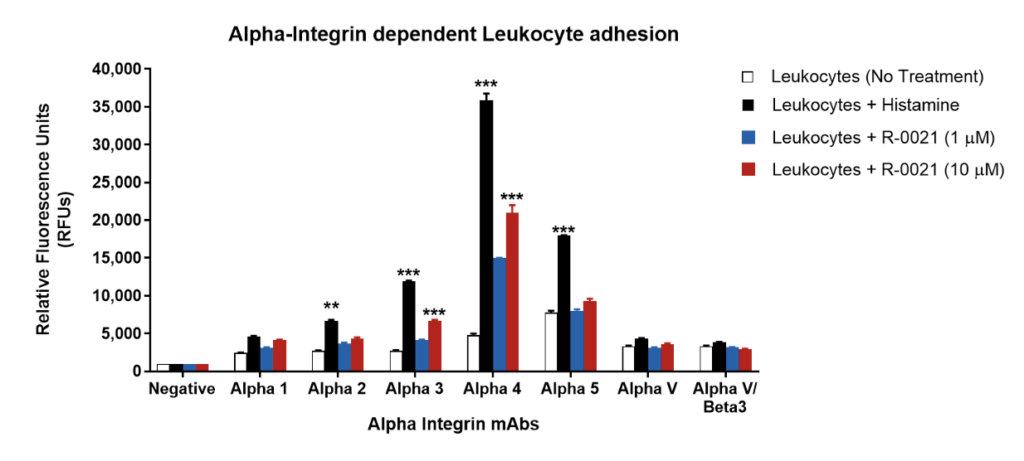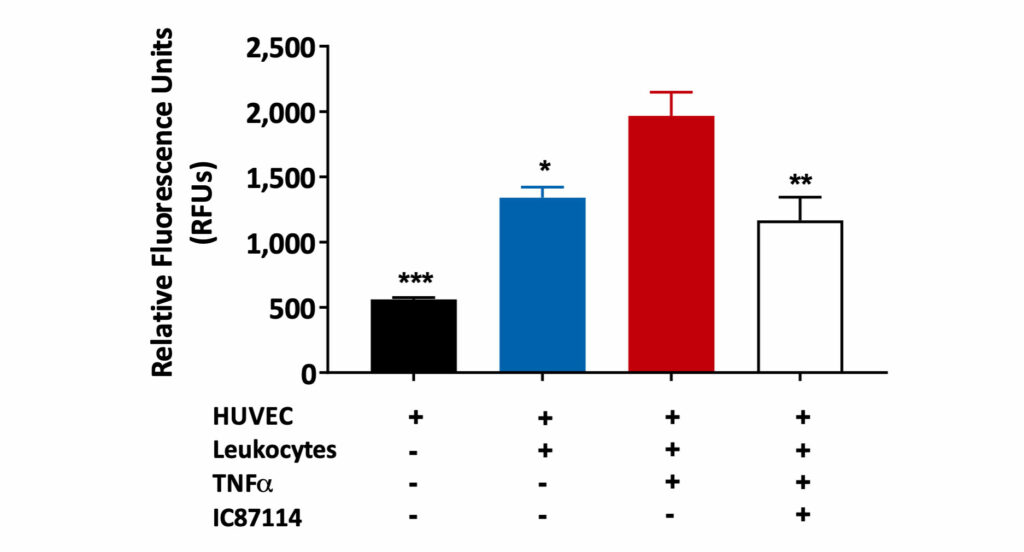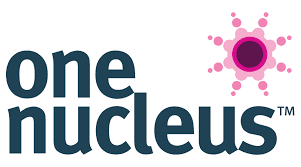Adhesion Assays
Cell adhesion is crucial for normal tissue development. Following oncogenic transformation cancer cells typically exhibit anchorage (adhesion) independent growth, loss of cell-cell adhesion and ultimately an increase in metastatic potential. Adhesion in also involved in signalling that regulates cell differentiation, cell cycle progress, cell migration, and cell survival. Integrins are key players in this process linking extracellular matrix and cytoskeleton. We offer a range of adhesion assays that can be customised to support a wide range of oncogenic endpoints.
Cellomatics Biosciences offer adhesion assays that can be applied to a wide range of projects.
Leukocyte adhesion using HUVEC co-culture
Effect of test compound IC78114 on Leukocyte adhesion. Human umbilical vein endothelial cells (HUVEC) were stimulated with TNFα in the presence or absence of the PI3K inhibitor, IC87114. Fluorescently labelled peripheral blood derived human leucocytes were then cultured with HUVEC to determine leucocyte adhesion. A statistically significant increase in leukocyte adhesion was observed following TNFα stimulation of HUVEC monolayers. This effect was significantly inhibited by IC87114 (PI3K inhibitor). (Data are presented as Mean+SEM *p<0.05; **p<0.01; ***p<0.001±SEM).
Cell Adhesion and the role of integrins

Effect of test compound R-0021 on Leukocyte adhesion. Leukocytes were treated with Histamine to activate integrins and two concentrations (1 µM and 10 µM) of R-0021 test compound. There was significant increase in alpha-2, 3, 4, 5-integrin mediated Leukocyte adhesion (measured using an ELISA based protocol) with Histamine treatment when compared to untreated (empty boxes). Higher concentration of R-0021 (10 µM) showed significant increase in the adhesion of Leukocytes by Alpha 3 and Alpha 4-Integrin when compared to untreated. Data is represented from 1 experiment conducted in triplicates and analysed using Two-way ANOVA followed by post-hoc Dunnett’s multiple comparisons test (Data are presented as Mean+SEM **p<0.01; ***p<0.001 compared to no treatment).
Request a consultation with Cellomatics Biosciences today
Our experienced team of in vitro laboratory scientists will work with you to understand your project and provide a bespoke project plan with a professional, flexible service and a fast turnaround time.
To request a consultation where we can discuss your exact requirements, please contact Cellomatics Biosciences.








